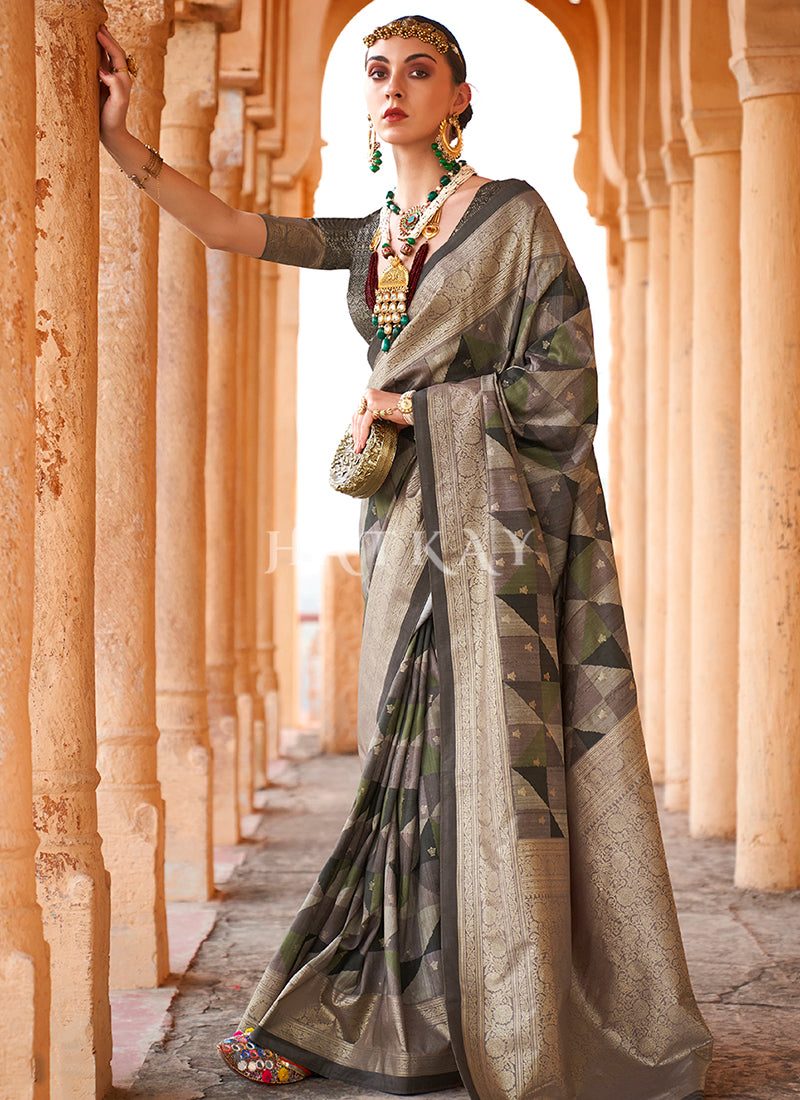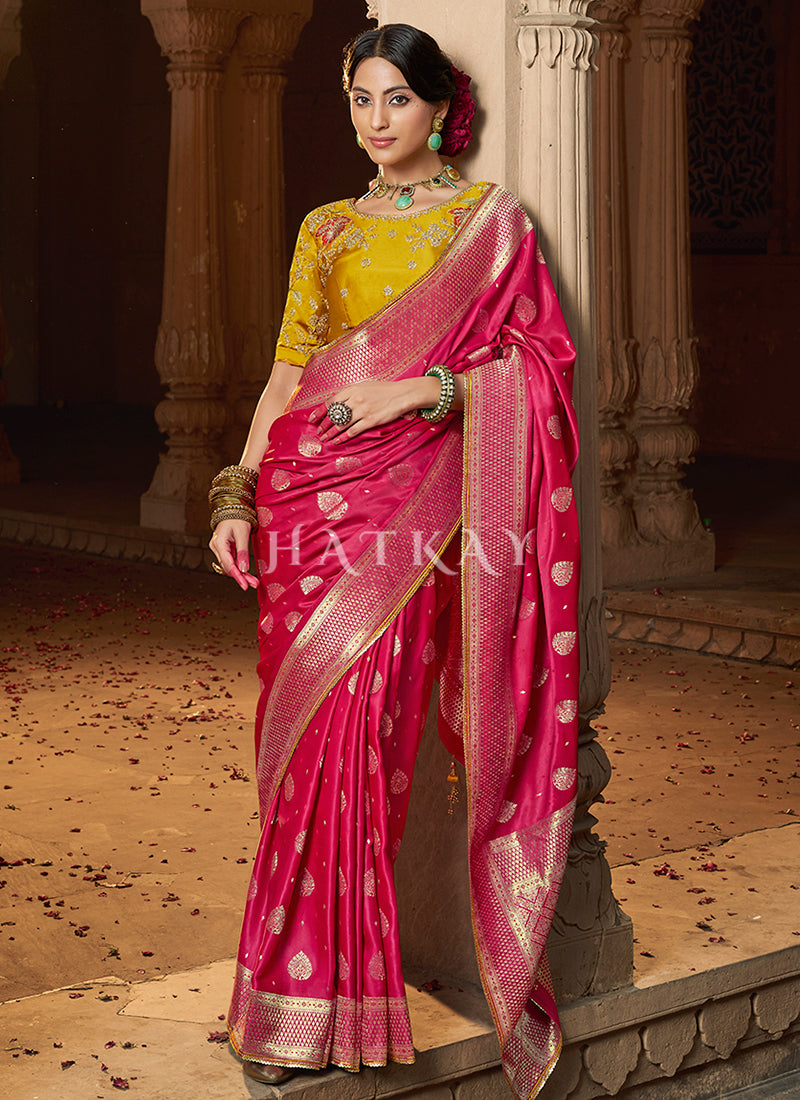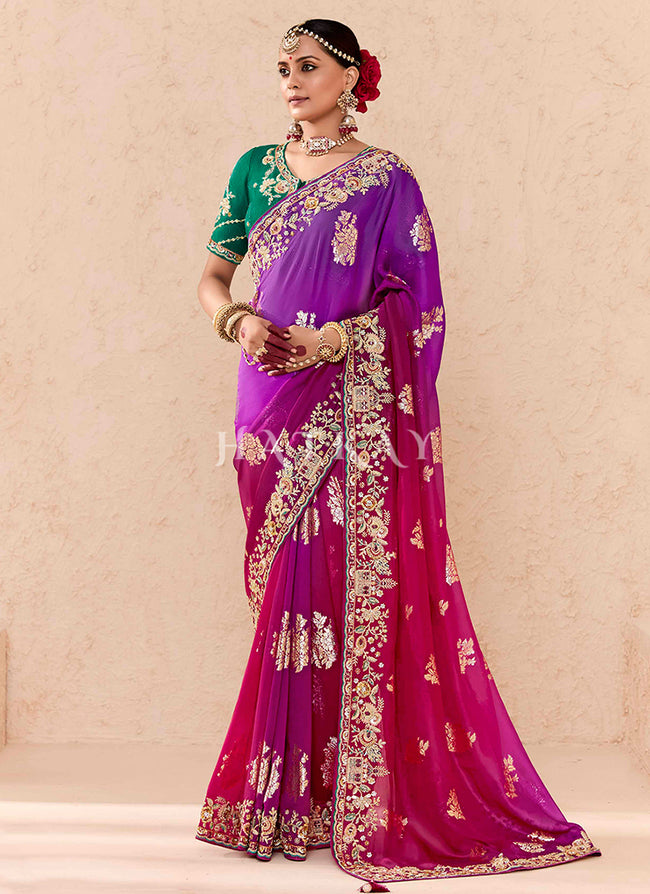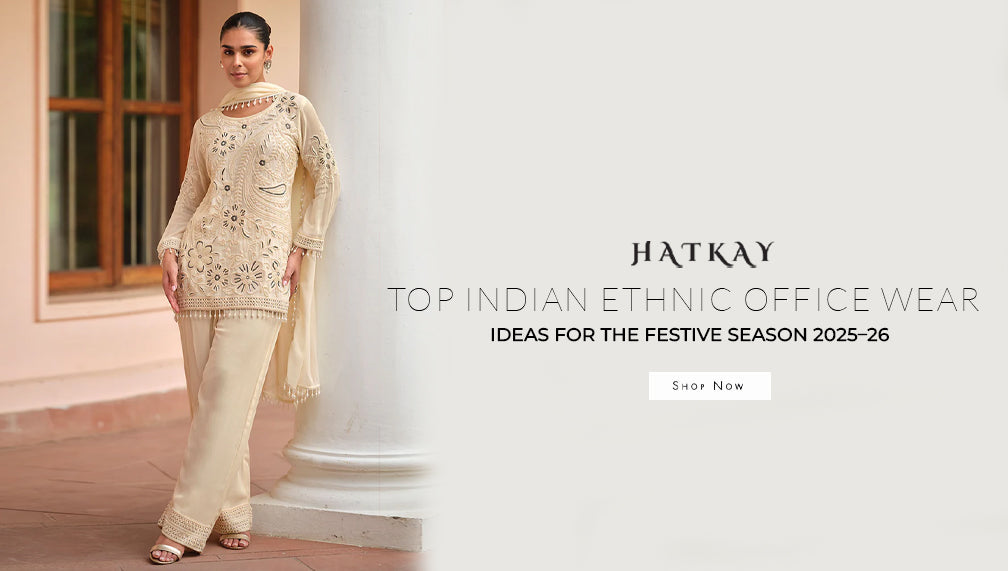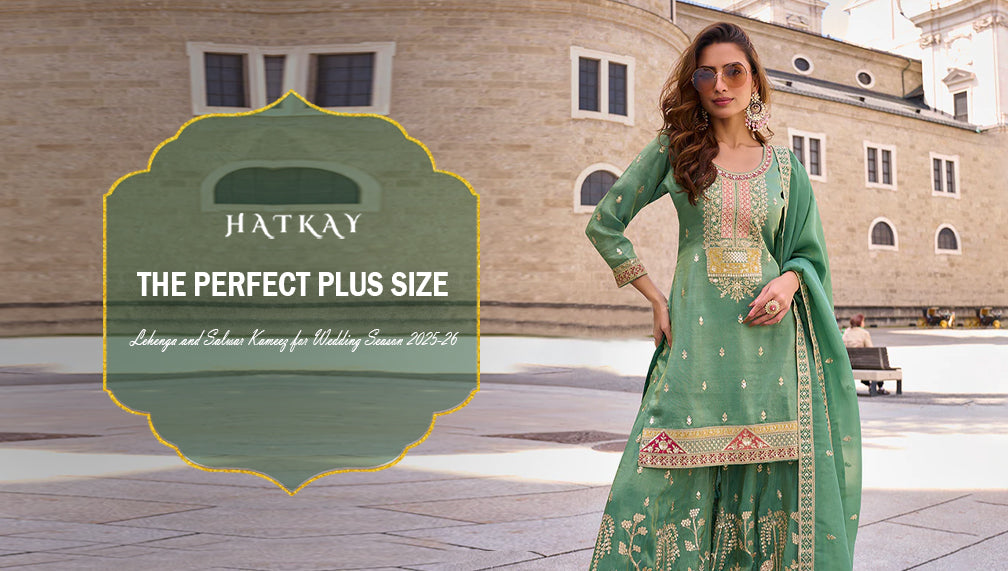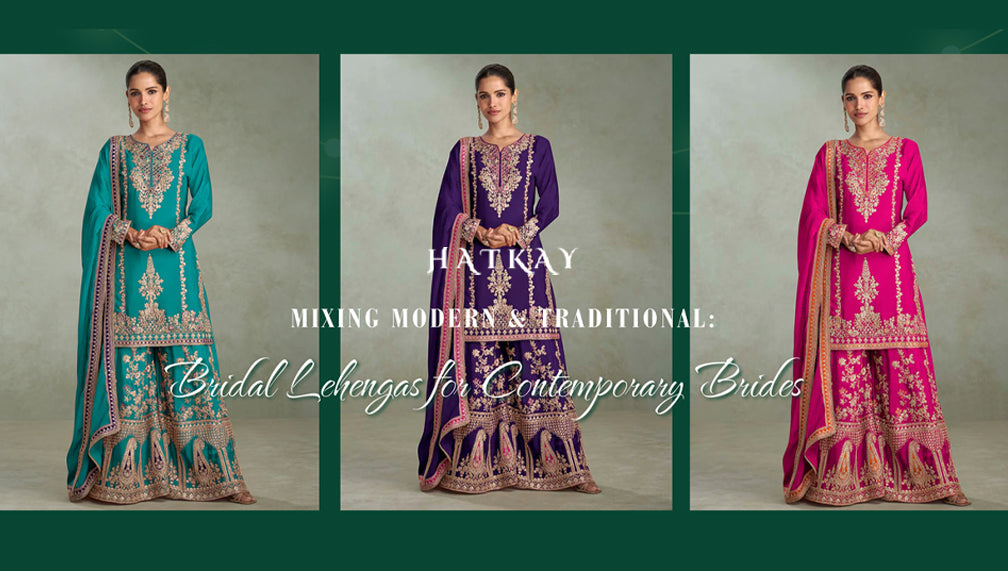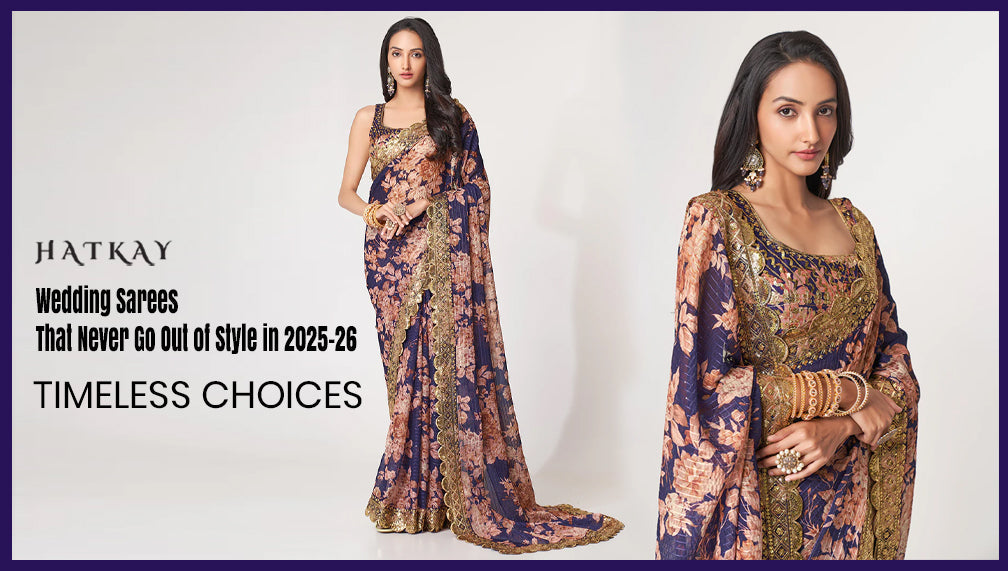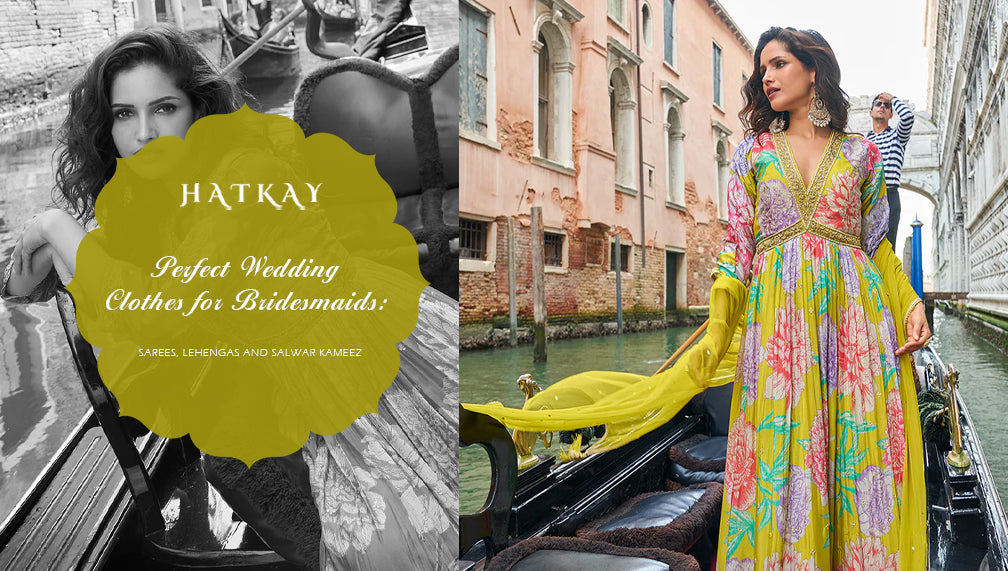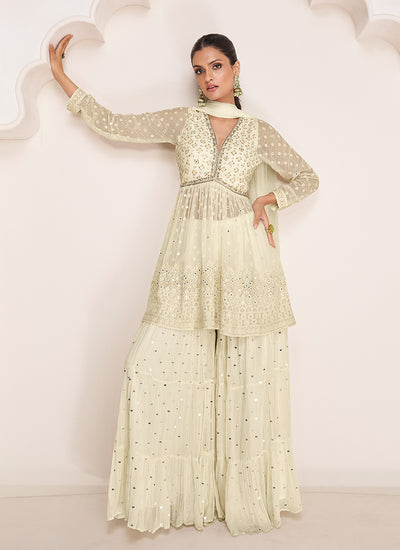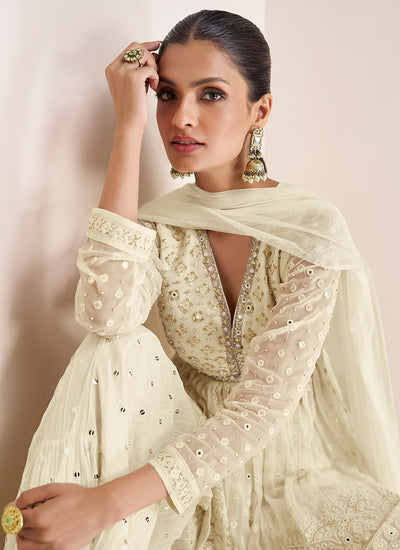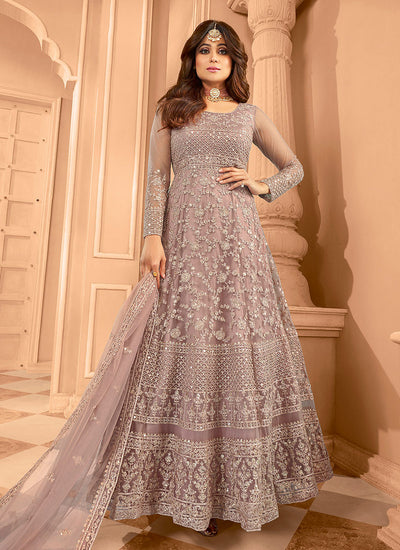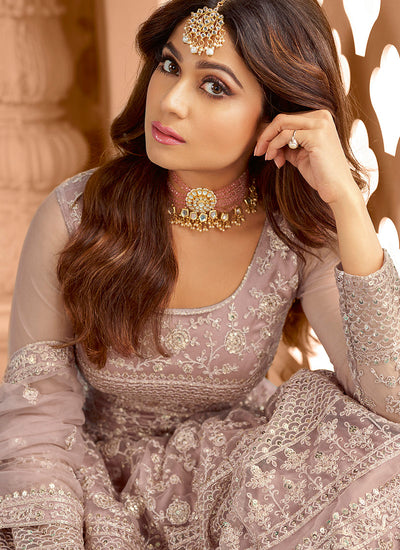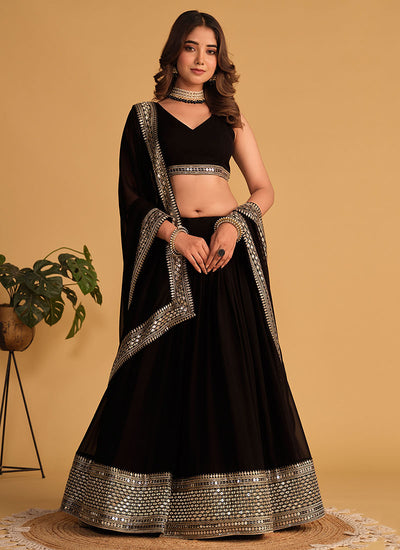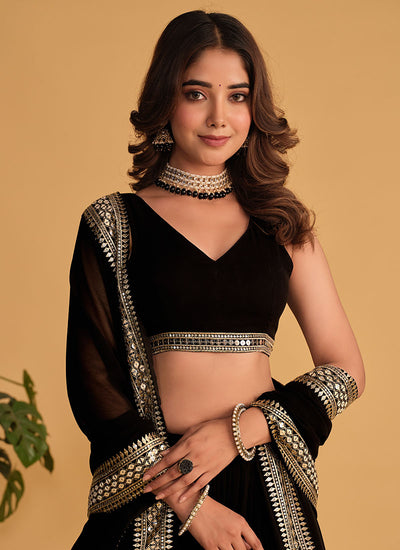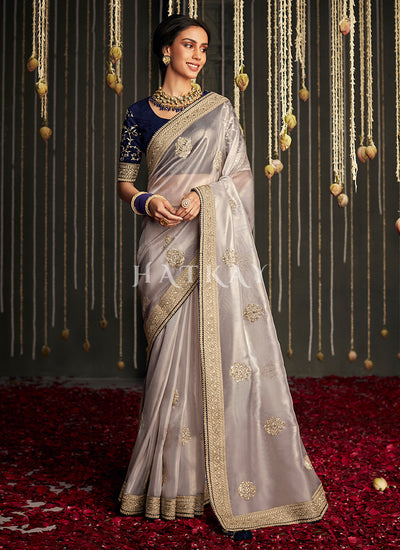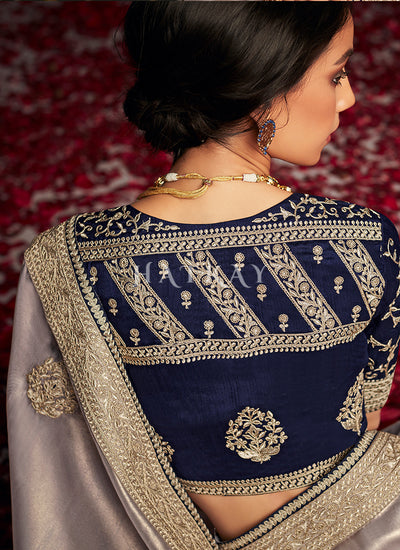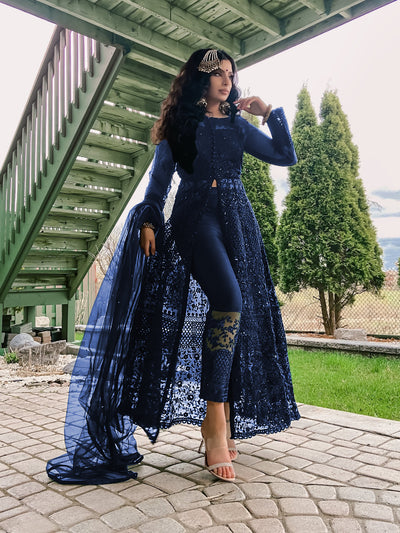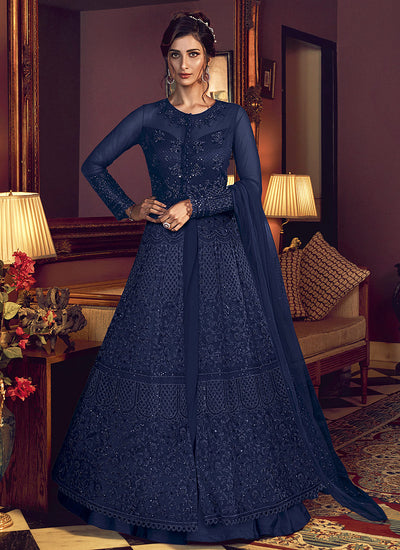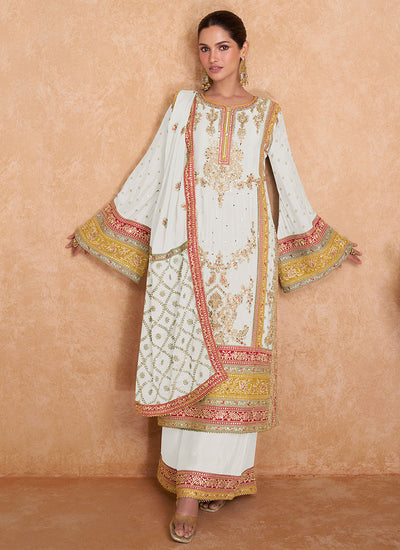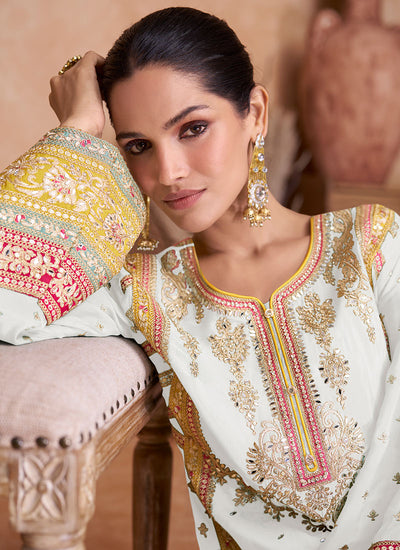
A Guide to the Different Types of Silk Sarees – Timeless Elegance Unveiled
Silk sarees are more than just garments—they’re cultural heirlooms, symbols of tradition, and timeless pieces of art. From grand weddings to festive celebrations, silk sarees have been gracing Indian wardrobes for centuries, each type with its own history, weaving technique, and regional charm.
If you're looking to explore the world of silk sarees—whether you're a bride-to-be, a saree enthusiast, or simply curious—this guide unveils the different types of silk sarees that define elegance across India.
1. Kanjeevaram Silk – The Queen of Silks
Origin: Tamil Nadu
Key Features: Rich colors, gold zari borders, temple designs
Kanjeevaram sarees are known for their lustrous texture and durability. Woven with pure mulberry silk and gold or silver zari, they often feature traditional motifs like peacocks, elephants, and temples. A staple in South Indian bridal trousseaus, a Kanjeevaram exudes grandeur.
👑 Perfect for: Weddings, formal events, and temple ceremonies
2. Banarasi Silk – A North Indian Classic
Origin: Varanasi, Uttar Pradesh
Key Features: Mughal-inspired designs, intricate brocade, floral motifs
Banarasi silk sarees are synonymous with luxury. Woven with fine silk and decorated with elaborate gold or silver threads, they often feature Mughal-inspired designs like jali work, floral vines, and paisleys.
🌟 Best for: Brides, festive occasions, or any event where you want to make a statement
3. Mysore Silk – Subtle Sophistication
Origin: Karnataka
Key Features: Smooth texture, minimalistic designs, elegant sheen
Known for their simplicity and elegance, Mysore silk sarees are lighter compared to other types and are made with pure silk and real gold zari. Their refined beauty lies in their understated appeal.
✨ Ideal for: Formal gatherings, office events, and elegant daywear
4. Paithani Silk – Maharashtrian Majesty
Origin: Maharashtra
Key Features: Peacock motifs, oblique square borders, vibrant colors
Paithani sarees are handwoven treasures with a rich heritage. They are often made from fine silk and adorned with traditional motifs like peacocks, lotuses, and vines, woven in real zari.
💫 Wear it for: Traditional functions, festive rituals, and bridal ceremonies
5. Patola Silk – Double Ikat Brilliance
Origin: Gujarat
Key Features: Geometric patterns, double ikat technique, vibrant hues
Patola sarees are among the most intricate silk weaves in India. Made using the double ikat technique, both the warp and weft threads are dyed before weaving, resulting in stunning symmetrical designs.
🎨 Great for: Cultural events, weddings, or collectors of rare textiles
6. Chanderi Silk – Sheer Elegance
Origin: Madhya Pradesh
Key Features: Lightweight, glossy finish, delicate motifs
Chanderi sarees are known for their airy texture and subtle shine. Often woven with silk and cotton, they feature nature-inspired motifs like lotuses, coins, and birds, making them perfect for warm climates.
🌿 Best suited for: Daytime weddings, pujas, or elegant summer events
7. Tussar Silk – Earthy & Raw
Origin: Bihar, Jharkhand, Chhattisgarh
Key Features: Natural gold sheen, coarse texture, tribal designs
Tussar (or Kosa) silk sarees are crafted from wild silkworms and prized for their raw texture and organic tones. They're often hand-painted or embroidered with tribal and folk art.
🍂 Style it for: Cultural festivals, artistic events, or eco-conscious fashion
8. Baluchari Silk – Stories in Silk
Origin: West Bengal
Key Features: Mythological scenes, narrative pallu designs, rich colors
Baluchari sarees are known for their story-telling pallus—depicting scenes from epics like the Mahabharata and Ramayana. They are woven with intricate precision and rich threads.
📖 Ideal for: Classical performances, traditional gatherings, and saree collectors
9. Assam Silk (Muga & Eri) – The Golden Treasure
Origin: Assam
Key Features: Naturally golden yarn (Muga), soft Eri silk, eco-friendly
Muga silk is exclusive to Assam and known for its natural golden hue and unmatched durability. Eri silk, often called "Ahimsa silk," is soft and warm—perfect for conscious fashion lovers.
🌞 Perfect for: Heirloom pieces, sustainable weddings, and cultural events
Final Thoughts
Silk sarees aren’t just about fabric—they’re about legacy, artistry, and the stories they carry. Each type of silk saree reflects the spirit of its region and weaver, offering something for every style, occasion, and generation.
Whether you’re building your collection or choosing your first saree, let tradition guide you and elegance follow. After all, few garments in the world can match the grace of a well-draped silk saree.













